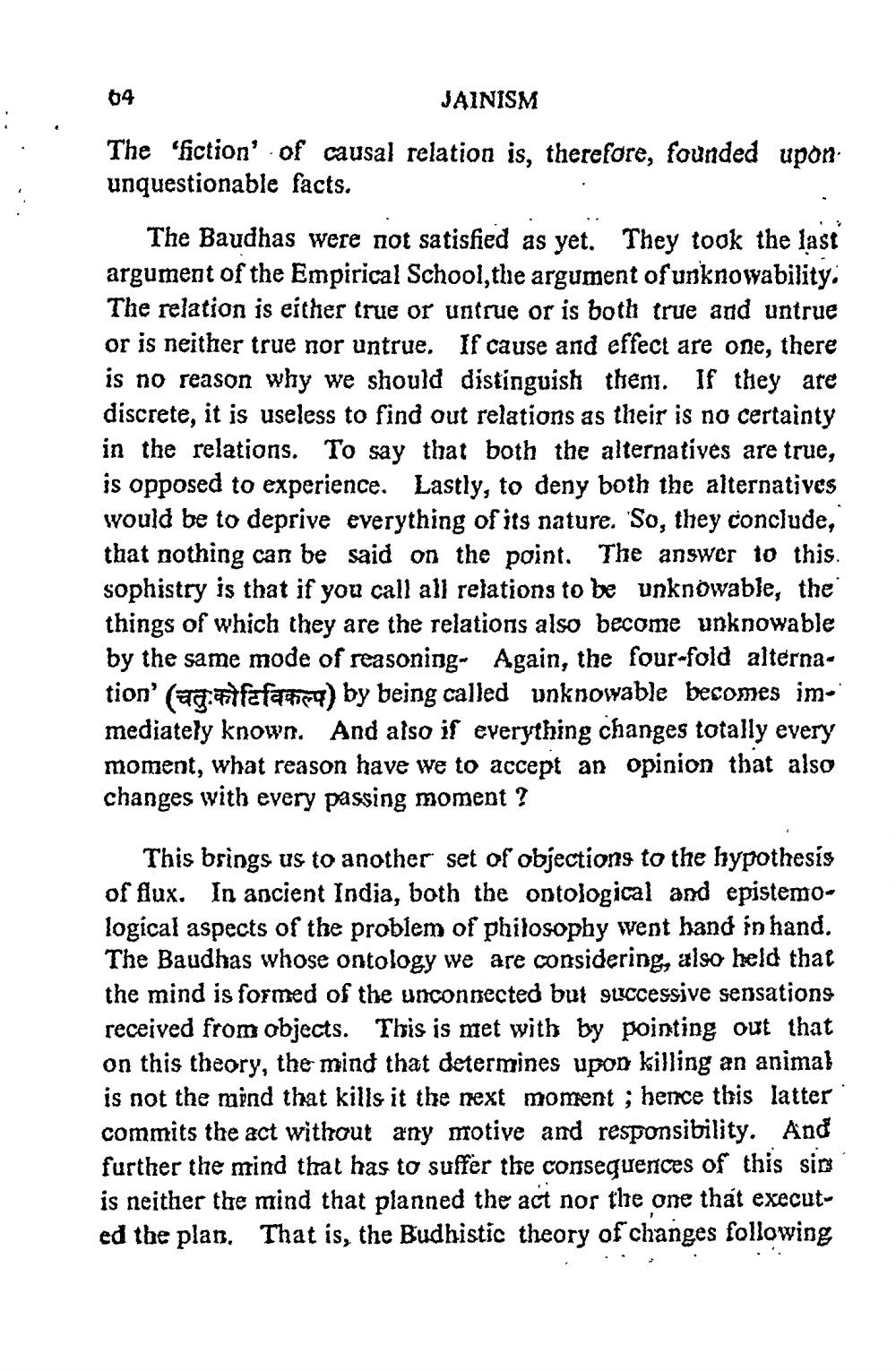________________
04
JAINISM The “fiction of causal relation is, therefore, founded upon. unquestionable facts.
The Baudhas were not satisfied as yet. They took the last argument of the Empirical School,the argument of unknowability: The relation is either true or untrue or is both true and untrue or is neither true nor untrue. If cause and effect are one, there is no reason why we should distinguish then. If they are discrete, it is useless to find out relations as their is no certainty in the relations. To say that both the alternatives are true, is opposed to experience. Lastly, to deny both the alternatives would be to deprive everything of its nature. So, they conclude, that nothing can be said on the point. The answer to this sophistry is that if you call all relations to be unknowable, the things of which they are the relations also become unknowable by the same mode of reasoning. Again, the four-fold alternation' (aq:qifafania) by being called unknowable becomes immediately known. And also is everything changes totally every moment, what reason have we to accept an opinion that also changes with every passing moment ?
This brings us to another set of objections to the hypothesis of flux. In ancient India, both the ontological and epistemological aspects of the problem of philosophy went hand in hand. The Baudhas whose ontology we are considering, also held that the mind is formed of the unconnected but successive sensations received from objects. This is met with by pointing out that on this theory, the mind that determines upon killing an animal is not the mind that kills it the next moment ; hence this latter commits the act without any motive and responsibility. And further the mind that has to suffer the consequences of this si is neither the mind that planned the act nor the one that executed the plan. That is, the Budhistic theory of changes following




